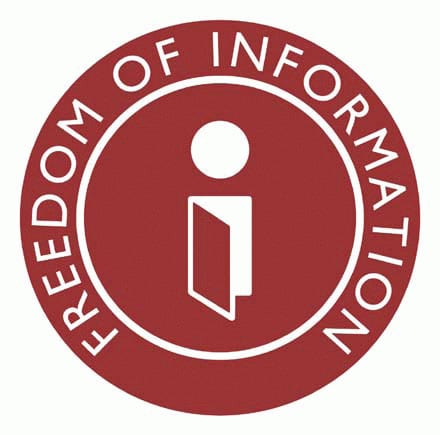
February 26, 2019; Arkansas Democrat-Gazette
Arkansas State Sen. Kim Hammer introduced Bill 231 to permit state oversight into the day-to-day business deals of the nonprofits that work with public entities, providing direct support to a government body like a university either with labor or dollars. The bill would allow the public to see copies of documents, such as contracts and loan agreements.
On February 27, 2019, the bill was “re-referred” to the Arkansas Senate Committee on State Agencies and Governmental Affairs and is on today’s agenda.
In the current draft, Bill 231 stops short of demanding that donors are public record, which follows current IRS rules. It does appear to need some tightening; it states that “all records maintained in public offices or by public employees within the scope of their employment are presumed to be public records”—which might include personnel files. How much of an employee’s file can be shared can be subjectively interpreted.
The Arkansas Freedom of Information Act Task Force, a group of attorneys, public officials, and journalists, has endorsed the legislation. A member of the task force, attorney John Tull, said the documents in question are already subject to the state’s Freedom of Information Act (FOIA) in many instances. However, document requests by The Arkansas Democrat-Gazette from university support foundations were denied.
Tull called the draft amendment a “good balance of the public’s right to know and the work of private foundations.”
“This is a gray area of the law and has been for some time,” Tull said. “As I understand Senator Hammer’s bill—that makes it clear that the law applies to the [private] entity.”
Two public charity support foundations illustrate the transparency issues: the Razorback Foundation and the Red Wolves Foundation. The Razorback Foundation listed gross receipts of $51 million on the 990 for the fiscal year ending June 30, 2016. Its sole purpose is to support the University of Arkansas (UA) athletics. The publicly available 990 provides expenses with few details, things like speaking expenses to contractors of $1.5 million and revenue of about $49 million, that is in “all other contributions, gifts, grants, and similar amounts not included above.”
The Red Wolves Foundation supports the Arkansas State University Intercollegiate Athletic program. Red Wolves listed gross receipts of almost $13 million on their 990 from fiscal year ending June 30, 2017. They list $14.9 million in “Secured mortgages and notes payable to unrelated third parties.”
Sign up for our free newsletters
Subscribe to NPQ's newsletters to have our top stories delivered directly to your inbox.
By signing up, you agree to our privacy policy and terms of use, and to receive messages from NPQ and our partners.
The Democrat-Gazette unsuccessfully attempted to obtain documents from Razorback, including the contract the foundation had signed to assist in the search for a new head coach for the UA football team, the highest-paid public position in Arkansas. The newspaper did succeed in procuring almost 22,000 emails between foundation staff and UA, in order to track if there was any separation between the school and the foundation. The line between them seems to be blurred; foundation management were present for job interviews for UA Athletics department positions and for UA high-level strategy sessions and were able to use university trademarks at no cost.
While support foundations exist to help support a university, they are singular and separate. Yet, UA helped promote the foundation membership program, and the school let the foundation renege on capital campaign commitments in the millions.
One of the authors of Bill 231, Robert Steinbuch, a law professor at the University of Arkansas at Little Rock, said the Democrat-Gazette’s reporting on the story around those thousands of emails in 2018 on athletics foundations at the University of Arkansas, Fayetteville, and Arkansas State University (ASU) brought the issue to light. “It’s not only that one story, but that story happens over and over and over again,” Steinbuch said.
UA system spokesperson Nate Hinkel said the system opposes the bill “as it is written.”
“While some foundation records are publicly available through tax forms and other disclosures through the university,” Hinkel says, “we believe defining foundation records as ‘public’ would negatively impact private fundraising for university projects.” There was no explanation on how that level of transparency would affect fundraising; one imagines most donors would appreciate knowing how their funds are spent. Razorback Foundation’s director of strategic communications, Kassidie Blackstock, said in a statement that the bill would have an “adverse impact on philanthropic support,” but she did not specify how, either.
Similarly, the Red Wolves Foundation has refused public access to loan documents for two expansion projects that have been completed for the stadium, an expansion of the north end zone in 2017 and the west side of the stadium the year before. ASU had the foundation build the projects and collect the money generated by the increased seating through a lease agreement. The foundation paid for the projects with $42 million in loans collateralized by the lease agreements.
Money for the expansion projects came from an ASU graduate, Johnny Allison, who is chairman of Centennial Bank’s holding company, and his family, along with the bank’s $5 million. Jeff Hankins, the ASU system spokesperson, said that the loan is not guaranteed by the school; if the foundation defaults, “the bank would operate the premium area through the term of the lease until the loan was paid.” Hankins says the loan documents are not public records. ASU may want to take lessons from the University of Wisconsin-Oshkosh Foundation, which had to declare bankruptcy because of building loans anchored by the school.
Avoiding transparency creates the impression that there is something to hide. The FOIA applies to any “agency or improvement district that is wholly or partially supported by public funds or expending public funds.” Citing that a foundation did not receive public funds directly as a loophole to escape FOIA adds to that impression of possible wrongdoing.—Marian Conway













